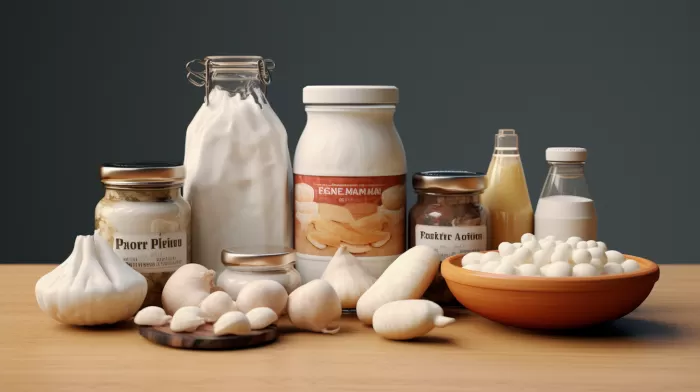Have you ever thought about the massive benefits of probiotics on your overall health? As fascination with these helpful microbes (good bacteria) continues to grow, researchers are consistently astounded by the incredible ways probiotics are improving health – from bone strength and lung health to emotional well-being.
New discoveries are being made every day, so let’s take a closer look at what scientists call the “human microbiome.”
Human History of Probiotics
People have been consuming probiotics for thousands of years in the form of cultured, fermented foods. Foods like yogurt, sauerkraut, miso from soybeans, and many other types of fermented foods and drinks have long been cherished for their numerous health-promoting properties. Probiotics are available as supplements too. As research continues to demonstrate the benefits of these health-promoting microbes, advancements in application and delivery methods will enhance their benefits, particularly in fighting drug-resistant bacterial infections.
Gut and Brain Connection
Traditional Chinese medicine and other ancient medical systems recognized the relationships between digestive health and brain health. Now, science confirms these links. A large percentage of brain neurotransmitter activity actually occurs in the digestive tract. In fact, researchers call the gut “the second brain” because of these close interconnections.
A new layer of gut-brain protection has been discovered with probiotics: Researchers recently demonstrated a correlation between increased probiotic bacteria in the gut and reduced risk of stroke. Results suggest that probiotic bacteria that produce carotenoids, a class of antioxidants, help protect against cardiovascular disease factors by providing specific antioxidant support in a bioavailable, digestible form. Study authors suggest that probiotic supplements could be used to protect cardiovascular health.
Moreover, a recent human study showed that eating yogurt can result in measurable changes in brain activity, highlighting that daily consumption of probiotics can reduce anxiety and stress and may also reduce pain, by modulating activity in areas of the brain that regulate these feelings.
Protection during Chemotherapy
Recent preclinical study suggests that probiotics may protect cancer patients from the side effects of high-dose chemotherapy. The drug RSPO1 has been shown to stimulate new cell growth in the intestines and protect against the harmful, immune-suppressing effects of chemotherapy. Probiotics mimic this effect by promoting optimal function of intestinal cells and activating genes that promote healthy intestinal cell regeneration.
Probiotics for Bone Health
A recent study reveals that probiotic supplements help protect against osteoporosis and bone loss. In this new study from the Journal of Cellular Physiology, researchers showed that the probiotic Lactobacillus reuteri, which reduces inflammation, significantly increases bone density after four weeks of treatment. A clinical study published in the Journal of Applied Nutrition supports this, showing that women who took a high-quality Japanese probiotic supplement for at least eight weeks increased their bone density by up to 36% compared to those who didn’t take the probiotic.
Probiotics for Weight Control
Specific probiotic bacteria called Lactobacillus gasseri were found to reduce visceral fat in people by up to 9% after 12 weeks of consuming milk with that specific strain. Researchers suggest that the anti-inflammatory and digestive-supporting benefits of this probiotic strain may have been responsible for this weight loss. Visceral fat is a dangerous type of fat that accumulates around organs and in the midsection of the body.
Other studies have also suggested that certain probiotic strains can aid in weight loss. A fascinating new study published in the Journal of Science showed that sets of twins with weight differences had different gut bacteria – and therefore, transferring the probiotic bacteria from an overweight twin to a thin mouse caused the thin mouse to become overweight.
Final Thoughts
Probiotics, found in various communities throughout the body, including in the lungs, skin, mouth, and other areas, support immunity, fight harmful invaders, and produce essential nutrients for optimal health. Strong, efficient digestion stands as the foundation of long-term wellness, making probiotics an essential component, outnumbering our human cells by 10:1 in the body.
It’s beneficial to consume a variety of cultured, fermented foods and beverages regularly. If you have specific health issues, it’s helpful to work with a healthcare provider familiar with selecting specific strains targeted to your condition. For general health, add a high-quality probiotic to your daily regimen.
For more health and wellness information, visit www.dreliaz.org.



